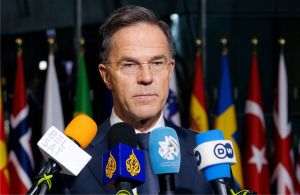The Middle East has been in a fever of war for a year after Hamas terrorists decided to illegally enter Israel, kill the young, old and children and take several hundred people hostage, mostly civilians, to achieve their political goals . Basically, on October 7, 2023, Hamas launched a devastating surprise attack on Israel that marked the beginning of a bloody new chapter in the Israeli-Palestinian conflict. Within a year, this aggression fundamentally transformed not only relations between Israel and the Palestinian territories, but also involved other countries in the Middle East, escalating international tensions.
The attack launched a year ago included the firing of more than 5,000 rockets into southern and central Israel and the ground infiltration of more than 3,000 militants into towns and kibbutzim near the Gaza Strip. Hamas attacked Israeli civilians in their own homes, killing more than 1,200 people and taking 251 hostages, including foreign nationals. Israel reacted promptly, launching massive airstrikes and declaring a state of war. Of the 251 hostages, only 105 have so far been recovered by Israeli forces, according to the Jerusalem Post and Times of Israel, and IDF.
Between October and November 2023, Israeli forces launched a series of ground attacks in Gaza with the aim of destroying Hamas' military infrastructure. Cities like Gaza City and Khan Yunis were badly affected. Due to the prolongation of the conflict, the blockade imposed by Israel on the Gaza Strip has led to a humanitarian crisis, with acute shortages of water, food and medicine. The United States and European allies supported Israel with advanced military equipment and financial aid.
In early 2024, Israel's operations focused on tunnels used by Hamas for smuggling and fast travel. Despite Israel's efforts to destroy Hamas' underground network, the terrorist group has managed to continue its guerrilla attacks, also supported by Hezbollah, a terrorist group in Lebanon that is financially supported by Iran. Herzbollah militants have stepped up attacks on Israel's northern border, causing dozens of deaths and escalating the conflict to a regional dimension. That is why, between April and September 2024, the conflict spread to the north of Israel, and that is why, in order to stop the attacks of Hezbollah, the authorities in Tel Aviv launched a major offensive in the south of Lebanon, bombing the infrastructure of the terrorist group and eliminating the high-ranking commanders of both this group and Hamas. At the same time, cyber and military attacks between Israel and Iran have intensified. Iran, through its proxies in Iraq and Syria, has carried out attacks against Israeli bases in the region.
During the conflict, according to the Institute for the Study of War (ISW), but also the Jerusalem Post, the Times of Israel and the Al Jazeera website, the number of victims increased exponentially, as follows:
- Israel: More than 1,200 civilians and soldiers died in the first days of the conflict, most of them killed during the initial attacks by Hamas. In total, until October 2024, 728 Israeli soldiers lost their lives in the armed clashes that took place with Hamas terrorists in the Gaza Strip. 4,576 Israeli soldiers have been injured in the conflict over the past year.
- Gaza: According to UN reports, more than 40,000 Palestinians have lost their lives in the Gaza Strip, most of them civilians caught in airstrikes and ground clashes. The humanitarian crisis has affected nearly two million people, leaving many without access to water, electricity or healthcare. That is why 90% of the population of the Gaza Strip left their homes.
- Lebanon: The conflict in southern Lebanon has caused the death of approximately 3,000 people, most of them Hezbollah militants, but also civilians who were caught in the Israeli bombardment.
- The Israeli Armed Forces (IDF) claim to have eliminated 17,000 terrorists in the Gaza Strip, at least 800 terrorists in Lebanon, to have destroyed 4,700 tunnels and 11,000 locations controlled by Hamas and Hezbollah. IDF figures say the army killed eight Hamas brigade commanders and those of equivalent rank, as well as more than 30 battalion commanders. More than 165 Hamas commanders and operatives of similar rank were also killed, according to the data. The IDF also claims that since the start of the war, more than 26,000 rockets and drones have been fired at Israel from Palestine, Lebanon, Yemen, Syria and Iran. According to the Israeli military, these are 13,200 projectiles fired from Gaza - at least 5,000 on October 7, 2023 alone -, 12,400 from Lebanon, about 60 from Syria, 180 from Yemen and 400 from Iran - the latter in two massive direct attacks on Israel from April 13 and October 1, 2024.
• Pro-Palestine protests in Western universities, terrorist attacks in Europe
Following Israel's invasion of the Gaza Strip on October 7, 2023, international reactions were strong and diverse, triggering a wave of protests in many Western academic centers and escalating tensions globally. Such protests have become ubiquitous on many university campuses in the United States, Europe and other parts of the world. Students and activists mobilized in major universities in the US (Harvard, Berkeley, Columbia) and in countries such as the United Kingdom, France, Germany and Canada, to demonstrate solidarity with the people of Gaza and to denounce Israeli military actions. At Harvard, a letter published by several student groups declared Israel "solely responsible" for violence in the region, sparking national controversy and drawing criticism from political leaders and the US Jewish community. In Britain, universities such as Oxford and Cambridge were the scene of demonstrations where students chanted anti-war and pro-Palestine slogans, demanding an end to violence and a diplomatic solution to the conflict.
These protests have often been marked by tensions between supporters of the Palestinian cause and those of Israel, particularly amid a rise in anti-Semitism in parts of Europe. Authorities in several European countries have warned of the radicalization of young people and have stepped up security measures on campuses and public areas where large demonstrations have taken place.
In the context of this wave of protests and the escalation of violence in the Middle East, Europe was hit by several terrorist attacks in 2023 and 2024, directly related to the Israeli-Palestinian conflict and the rhetoric of Islamic extremists. In particular, Belgium and France were the targets of brutal attacks that took place in the months following the Israeli invasion of Gaza.
- Attack in Brussels, Belgium (October 16, 2023): A radicalized man inspired by Islamic extremist ideology, who declared on a social network that he was a member of the terrorist group Islamic State, shot and killed two Swedes and seriously injured another person , before the football match between Belgium and Sweden. Later, on December 6, 2023, a man opened fire in a busy shopping center in Brussels, killing three people and injuring ten others. The attacker said during the attack that he was acting "on behalf of Palestine" and was responding to "Israel's atrocities in Gaza". Belgian authorities considered the attack an act of terrorism, triggering extensive investigations into extremist cells in the region.
- Terrorist attacks and threats in France (October - December 2023): France has also been hit by a wave of terrorist threats and violence following the escalation of the conflict in Gaza. In the period following the October 16 attack in Brussels, several airports in France faced terrorist alarms, with several flights being delayed or canceled. Most such situations were recorded at Strasbourg and Paris airports. Later in December, a man in Paris fatally stabbed four people in a public park, saying the attack was "revenge for Gaza". This was followed by another incident in Marseille, where a man tried to detonate a bomb in a metro station but was stopped in time by security forces.
These attacks fueled fears of a possible escalation of terrorism in Europe at a time when tensions in the Middle East continued to rise. European governments have stepped up security measures in the wake of these attacks, with an emphasis on surveillance of radicalized groups and terrorist networks associated with the Israeli-Palestinian conflict.
• USA - on Israel's side, the ICC issued arrest warrants for Hamas leaders and Benjamin Netanyahu
The United States has been Israel's strongest supporter throughout the conflict. In the first days after the Hamas attack, President Joe Biden ordered the deployment of an aircraft carrier group to the Mediterranean and approved the sending of advanced military equipment. The US Congress approved a $14 billion financial and military aid package for Israel. Other Western allies such as Britain. France and Germany, in turn, sent logistical and financial support to help Israel in its fight against Hamas.
Throughout the conflict, the UN Security Council has repeatedly tried to pass resolutions for a ceasefire and humanitarian access to Gaza, but many of these resolutions have been blocked by the United States, which has used its veto power to protect Israel's interests. Internationally, the International Criminal Court (ICC) launched an investigation into alleged war crimes committed by both part. Hamas has been accused of crimes against humanity for killing Israeli civilians and using hostages, while Israel has been investigated for using disproportionate force in attacks on densely populated areas of Gaza.
Following the investigation, the Prosecutor General of the International Criminal Court issued arrest warrants for the commission of war crimes both in the name of Hamas leaders - most of whom have since been killed by Israeli forces, and in the name of Israeli Prime Minister Benjamin Netanyahu and others members of the Tel Aviv government, including former Defense Minister Yoav Gallant.
Unfortunately, although a year has passed since the smoldering conflict in the Middle East was escalated by the incursion of Hamas terrorists, the situation in the area is tense, especially since in April and September Iran attacked Israel by sending ballistic missiles and drones. Fortunately, the two massive attacks were repelled by Israel with the support of Iron Dome, but also with the help of the USA, France and Great Britain who used for this purpose the armed forces sent to the Mediterranean Sea, as well as with the help of neighbors such as Jordan who shot down some of the rockets sent by the Tehran authorities. Although international support for a two-state solution - Israel and Palestine - remains strong, pressures continue to mount as Iran seeks to expand its political and military influence throughout the region. That is why the current crisis, despite the military support offered to Israel, does not seem to be approaching a peaceful resolution, and the Middle East remains a confrontation ground for regional and global powers.
























































